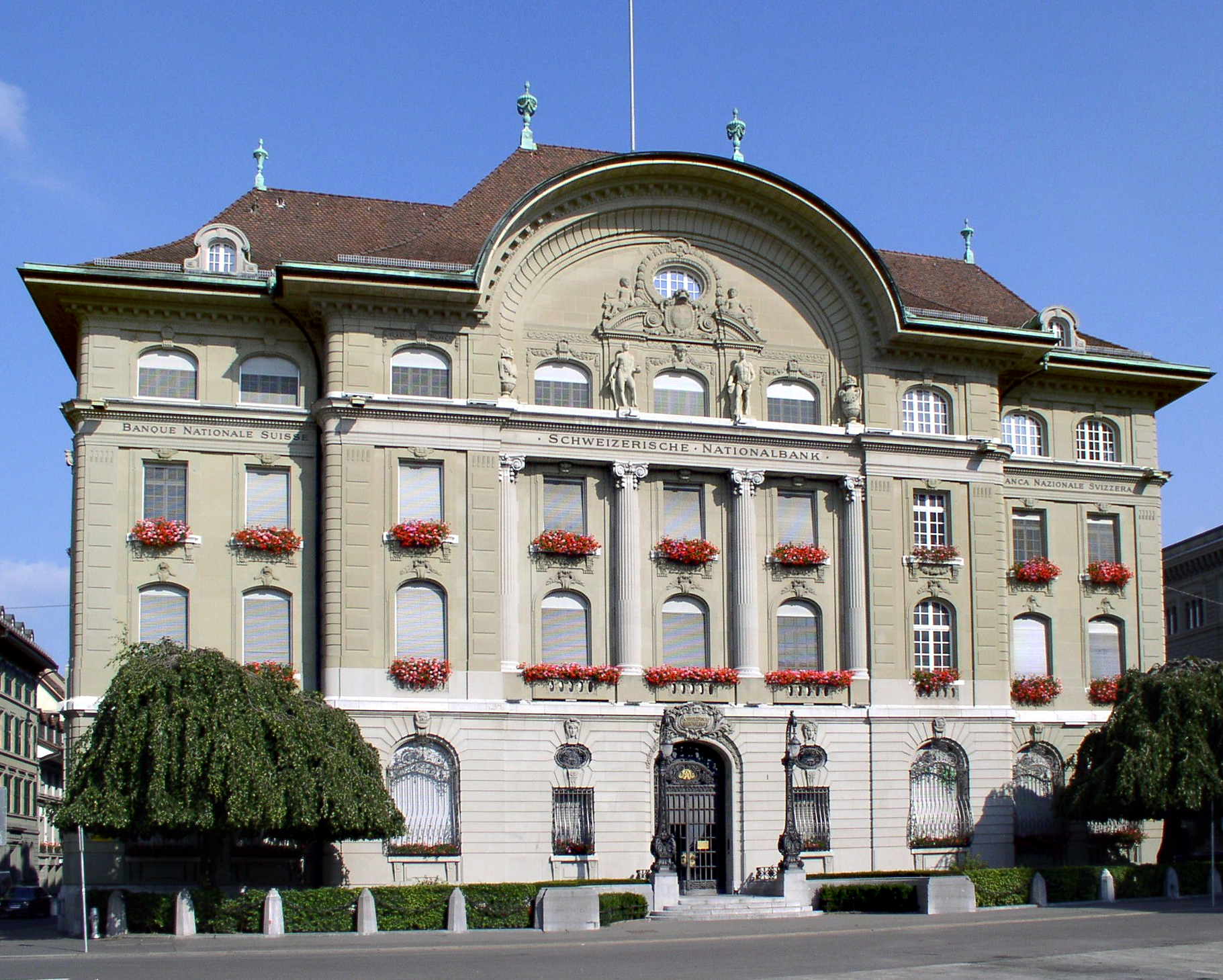|
Bank Clearing Number
A bank clearing number or BC number is a number used for the identification of financial institutions in Switzerland and Liechtenstein. Bank clearing numbers are connected to the Swiss Interbank Clearing and the EuroSIC system. Bank clearing numbers consists of 3 to 5 digits. To identify a particular branch of a financial institution clearly, a store ID is specified in addition to the bank clearing number. List of bank clearing numbers The first digit of the bank clearing number represents the institution: External links Download BC-Bankenstamm bei SIX Interbank Clearing (ge) {{Bank codes and identification Banking in Switzerland Banking technology Bank codes ... [...More Info...] [...Related Items...] OR: [Wikipedia] [Google] [Baidu] |
Swiss Interbank Clearing
The Swiss Interbank Clearing (SIC) system is a mechanism for the clearing of domestic and international payments. History The development of the SIC started in 1980. Since 1987, the SIC system has been operated by SIX Interbank Clearing (100% owned by the SIX Group) on behalf of the Swiss National Bank (SNB). 12 Swiss banks participated to the launch. The SIC was one of the first real-time gross settlement system operating worldwide ( Cedel was launched in 1970). In 1990, different priorities were introduced. In March 1995, the system was connected to the Secom to reduce transaction risks. In 1996, the Swiss Stock Exchange became an electronic trading platform, and the system SWX was developed to link it to the SIC. The repo platform was introduced in 1998, and the settlement of checks was launched in 2000. In 1998, the SNB loosened the conditions to participate to the SIC, allowing non-banks to become participants. A remote access to the system was also allowed to internation ... [...More Info...] [...Related Items...] OR: [Wikipedia] [Google] [Baidu] |
Swiss National Bank
The Swiss National Bank (SNB; german: Schweizerische Nationalbank; french: Banque nationale suisse; it, Banca nazionale svizzera; rm, Banca naziunala svizra) is the central bank of Switzerland, responsible for the nation's monetary policy and the sole issuer of Swiss franc banknotes. The primary goal of its mandate is to ensure price stability, while taking economic developments into consideration. The SNB is an ''Aktiengesellschaft'' under special regulations and has two head offices, one in Bern and the other in Zurich. History The bank formed as a result of the need for a reduction in the number of commercial banks issuing banknotes, which numbered 53 sometime after 1826. In the 1874 revision of the Federal Constitution it was given the task to oversee laws concerning the issuing of banknotes. In 1891, the Federal Constitution was revised again to entrust the Confederation with sole rights to issue banknotes. The Swiss National Bank was founded under the law of 6 Oc ... [...More Info...] [...Related Items...] OR: [Wikipedia] [Google] [Baidu] |
UBS AG
UBS Group AG is a multinational investment bank and financial services company founded and based in Switzerland. Co-headquartered in the cities of Zürich and Basel, it maintains a presence in all major financial centres as the largest Swiss banking institution and the largest private bank in the world. UBS client services are known for their strict bank–client confidentiality and culture of banking secrecy. Because of the bank's large positions in the Americas, EMEA, and Asia Pacific markets, the Financial Stability Board considers it a global systemically important bank. Apart from private banking, UBS provides wealth management, asset management, and investment banking services for private, corporate, and institutional clients with international service. UBS manages the largest amount of private wealth in the world, counting approximately half of the world's billionaires among its clients. Despite its trimming of sell-side operations, UBS maintains a global inves ... [...More Info...] [...Related Items...] OR: [Wikipedia] [Google] [Baidu] |
Credit Suisse Group AG
Credit Suisse Group AG is a global investment bank and financial services firm founded and based in Switzerland. Headquartered in Zürich, it maintains offices in all major financial centers around the world and is one of the nine global " Bulge Bracket" banks providing services in investment banking, private banking, asset management, and shared services. It is known for strict bank–client confidentiality and banking secrecy. The Financial Stability Board considers it to be a global systemically important bank. Credit Suisse is also primary dealer and Forex counterparty of the Fed. Credit Suisse was founded in 1856 to fund the development of Switzerland's rail system. It issued loans that helped create Switzerland's electrical grid and the European rail system. In the 1900s, it began shifting to retail banking in response to the elevation of the middle class and competition from fellow Swiss banks UBS and Julius Bär. Credit Suisse partnered with First Boston in 197 ... [...More Info...] [...Related Items...] OR: [Wikipedia] [Google] [Baidu] |
Cantonal Bank
The cantonal banks (''German: Kantonalbank, French: banque cantonale, Italian: banca cantonale)'' are 24 Swiss government-owned commercial banks. Most of them were founded between 1834 and 1916, although the Banque cantonale du Jura was founded in 1979 – due to the separation of Jura from the Canton of Berne, which occurred in 1978. 21 are provided by the canton in which they are based with a guarantee for the assets held there. Description Traditionally, cantonal banks are especially strong in savings and mortgage products. Currently they are in the process of being partially privatised. The cantonal banks are organised and regulated by the Association of Swiss Cantonal Banks, with its office in Basel. As a group, the cantonal banks account for about 30% of the banking sector in Switzerland, with a network of over 800 branches and 16 000 employees in Switzerland. In 2014 consolidated total assets of all cantonal banks accounted around 500 bln CHF, which is comparable with ... [...More Info...] [...Related Items...] OR: [Wikipedia] [Google] [Baidu] |
Raiffeisen (Switzerland)
Raiffeisen Switzerland is a cooperative of cooperatives – the union of all independent Swiss Raiffeisen banks. It bears responsibility for the business policy and strategy within the Raiffeisen Group. The 246 independent Raiffeisen banks of Switzerland are organised as cooperatives. With 896 branch offices in total, they make up the densest branch network of any Swiss bank. In the 21st century, the Raiffeisen Group has become the third-largest banking group in Switzerland with total assets currently at CHF 229 billion. Since June 2014, Raiffeisen has been classified as one of Switzerland's systemically important banks and must therefore meet special requirements in terms of capital. Raiffeisen Switzerland has 3.8 million clients in Switzerland, of whom 1.9 million are cooperative members and thus co-owners of their regional Raiffeisen banks. Union organisation The 246 legally independent Raiffeisen banks in Switzerland joined to form Raiffeisen Switzerland (formerly called t ... [...More Info...] [...Related Items...] OR: [Wikipedia] [Google] [Baidu] |
PostFinance
PostFinance is the financial services unit of Swiss Post which was founded in 1906. It is the fifth largest retail financial institution in Switzerland. Its main area of activity is in the national and international payments and a smaller but growing part in the areas of savings, pensions and real estate. PostFinance is fully-owned by the Swiss government.Samuel GerberPostfinance: Why the End of the Ban Matters ''Finews.com'', 6 September 2018 History In 2013, the Swiss Financial Market Supervisory Authority (FINMA) awarded PostFinance a bank licence. In 2015, PostFinance was declared a "Systemically important financial institution" in Switzerland by the Swiss National Bank, which means the bank must follow special regulations with regards to liquidity and equity. In 2016, PostFinance started to levy a 1% annual fee on deposits of above 1 million francs. In 2020, PostFinance's profits fell to 131 million Swiss francs (from 246 million in 2019 and 229 million francs in 2018) and ... [...More Info...] [...Related Items...] OR: [Wikipedia] [Google] [Baidu] |
Banking In Switzerland
Banking in Switzerland dates to the early eighteenth century through Switzerland's merchant trade and has, over the centuries, grown into a complex, regulated, and international industry. Banking is seen as emblematic of Switzerland, along with the Swiss Alps, Swiss chocolate, watchmaking and mountaineering. Switzerland has a long, kindred history of banking secrecy and client confidentiality reaching back to the early 1700s. Starting as a way to protect wealthy European banking interests, Swiss banking secrecy was codified in 1934 with the passage of the landmark federal law, the Federal Act on Banks and Savings Banks. These laws, which were used to protect assets of persons being persecuted by Nazi authorities, have also been used by people and institutions seeking to illegally evade taxes, hide assets, or generally commit financial crime. Controversial protection of foreign accounts and assets during World War II sparked a series of proposed financial regulations see ... [...More Info...] [...Related Items...] OR: [Wikipedia] [Google] [Baidu] |
Banking Technology
A bank is a financial institution that accepts deposits from the public and creates a demand deposit while simultaneously making loans. Lending activities can be directly performed by the bank or indirectly through capital markets. Because banks play an important role in financial stability and the economy of a country, most jurisdictions exercise a high degree of regulation over banks. Most countries have institutionalized a system known as fractional reserve banking, under which banks hold liquid assets equal to only a portion of their current liabilities. In addition to other regulations intended to ensure liquidity, banks are generally subject to minimum capital requirements based on an international set of capital standards, the Basel Accords. Banking in its modern sense evolved in the fourteenth century in the prosperous cities of Renaissance Italy but in many ways functioned as a continuation of ideas and concepts of credit and lending that had their roots in the an ... [...More Info...] [...Related Items...] OR: [Wikipedia] [Google] [Baidu] |




